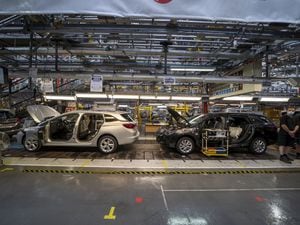UK automotive fleet carbon emissions fall by 11.8 per cent year on year
Falling emissions have been spurred on by a push for more electrification.

The UK’s automotive fleet posted its best-ever year for carbon emission reduction, according to a report released today by the Society of Motor Manufacturers and Traders (SMMT).
The figures, released as part of the SMMT’s Sustainability Report, showed that average carbon emissions were reduced by a record-breaking 11.8 per cent in a single year.
It comes as firms increase the development of zero-emissions vehicles, with electric models accounting for more than one in 10 registrations during 2020 alone. There was also a 90 per cent increase in the number of plug-in hybrid vehicles, too.
At present, buyers in the UK have 130 plug-in – be that electric or plug-in hybrid – vehicles to choose from.
Last year the UK production of battery-electric, plug-in hybrid and hybrid vehicles rose to 18.8 per cent of all cars made, rising from 14.8 per cent in 2019. Battery-level vehicles increased their share from 3.4 per cent to 4.5 per cent, too.
Their production has been made more efficient, too. In fact, according to the SMMT’s data, these electrified vehicles are made more sustainably, with 14.2 per cent less energy and 36.8 per cent less water used than on an average vehicle compared with the turn of the millennium. Total combined waste to landfill was down 98.7 per cent, while CO2 equivalents per vehicle produced fell 36.5 per cent.
However, the coronavirus pandemic did impact production and, because of this, year-on-year energy, waste to landfill and water usage increased per vehicle by 11.2, 19.9 and 8.3 per cent respectively.
Mike Hawes, SMMT chief executive, said: “The impact of the pandemic on a sector such as automotive, one which depends on global supply lines, strong consumer demand and a highly skilled workforce, was always going to be severe. As the latest Sustainability Report shows, economic and market growth stalled with many factories shuttered and retail closed.
“Yet the pandemic also proved the importance of the sector as it turned its capabilities to PPE and ventilator manufacture and assured the nation’s mobility through the continued servicing and repair of vehicles.
“Despite the adversity, the industry’s commitment and investment in zero emission vehicles remained undiminished, delivering the best-ever single year of fleet average carbon reduction. Much more needs to be done on this and so many other sustainability indicators, to which the sector looks to the Government to ensure the framework, incentives and infrastructure exist to enhance our competitiveness and deliver the sustainable future society demands.”





